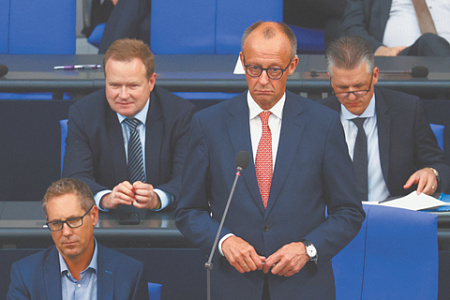
Signs are emerging of a significant hardening in the Western approach towards Russia, with both the United States and key European allies signaling that the era of diplomatic overtures may be drawing to a close. Recent statements from top officials suggest a coordinated move towards tougher sanctions and increased military support for Ukraine, marking a potential turning point in the international standoff with Moscow.
In a notable policy shift, U.S. President Donald Trump has expressed profound dissatisfaction with Vladimir Putin’s response to American peace initiatives, hinting at a forthcoming “little surprise” for Russia. This change in tone is being reinforced by White House signals, including reports that Trump now advocates for new shipments of advanced weaponry to Ukraine, such as air defense systems. The Kremlin has publicly downplayed the rhetoric as part of Trump’s characteristic style, stating that it expects the bilateral dialogue to continue.
This tougher executive stance is mirrored in the U.S. Congress, which is reportedly advancing a powerful bill to impose secondary sanctions. The legislation would target countries that continue to purchase Russian energy with potentially crippling tariffs. With strong bipartisan support reportedly secured, its passage appears highly probable, poised to add a formidable economic weapon to Washington’s arsenal.
This sentiment is echoed across the Atlantic, where prominent German political leaders have publicly declared that diplomatic avenues with Russia are “exhausted” and have called for a substantial increase in arms deliveries to Kyiv. The European Union is concurrently preparing its own new package of sanctions, aiming to synchronize its actions with the United States. While facing a potential veto from Slovakia, the EU has a history of overcoming such internal hurdles to maintain a united front against Moscow.
A new challenge to the EU package has emerged, however, with Estonia threatening to block the measures unless they include a provision to significantly lower the price cap on Russian oil. The European Commission supports reducing the cap to further curtail Russia’s revenue, but the proposal faces opposition from member states like Greece and Malta, whose shipping industries are involved in transporting Russian crude. This internal debate highlights the complexities of tightening the economic vise.
Adding to the multifaceted pressure, a recent landmark ruling by the European Court of Human Rights has held the Russian state directly responsible for the 2014 downing of flight MH17 over Ukraine. This legal precedent is expected to empower further lawsuits and compensation claims, intensifying the international legal and political pressure on Moscow from yet another front.
